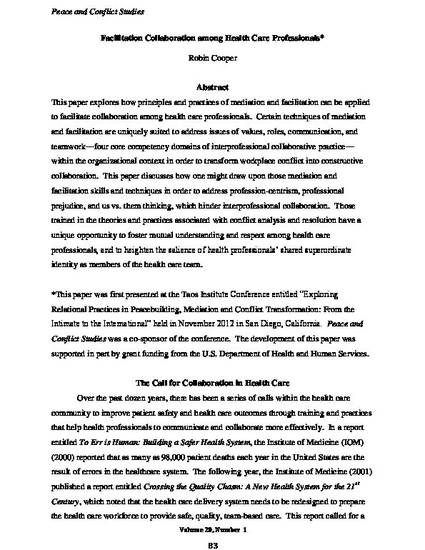
This paper explores how principles and practices of mediation and facilitation can be applied to facilitate collaboration among health care professionals. Certain techniques of mediation and facilitation are uniquely suited to address issues of values, roles, communication, and teamwork—four core competency domains of interprofessional collaborative practice—within the organizational context in order to transform workplace conflict into constructive collaboration. This paper discusses how one might draw upon those mediation and facilitation skills and techniques in order to address profession-centrism, professional prejudice, and us vs. them thinking, which hinder interprofessional collaboration. Those trained in the theories and practices associated with conflict analysis and resolution have a unique opportunity to foster mutual understanding and respect among health care professionals, and to heighten the salience of health professionals’ shared superordinate identity as members of the health care team.
- conflict resolution,
- health care professionals,
- inter-professional communication,
- mediation and facilitation
Available at: http://works.bepress.com/robin-cooper/27/
